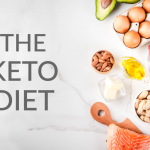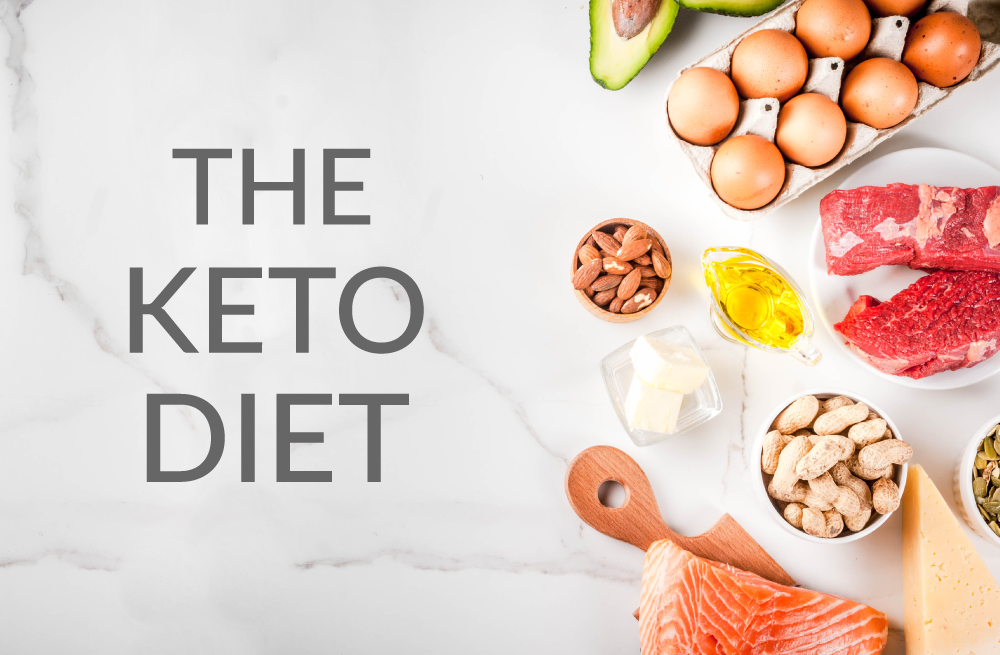A keto diet is a very low-carb diet that offers many health benefits. It can help reduce body weight, blood sugar, and triglycerides levels. The main goal of the keto diet is to get the body into a metabolic state called ketosis. This happens when the body uses fat instead of carbohydrates as its primary source of energy. the ketogenic diet is growing in popularity as more and more people discover its benefits. But, what exactly is the ketogenic diet, and how can it help you?
What is the ketogenic diet?
A ketogenic diet is a dietary approach that helps to put your body into an effective state for burning fat. Ketosis is a metabolic state when your body has started to use fat as fuel instead of sugar. Many people follow a ketogenic diet when they want to lose weight. A healthy keto diet contains some saturated fats, lots of protein, few carbs, and minimal sugars or alcohol. By severely limiting the number of carbs you eat, your body changes the way it burns calories in order to survive. If you eat a diet that’s low in carbohydrates, your body doesn’t have enough glucose to survive. Instead, it burns fat as an alternative source of fuel. This process is called “ketosis,” and it creates a byproduct called “ketones” which your kidneys flush out in the urine.
How does the ketogenic diet work?
When you eat fewer carbs, your body enters a state called ketosis. Ketosis is a natural metabolic process that happens when your body doesn’t have enough glucose — the energy it typically gets from carbohydrates — to function properly. In ketosis, your liver converts fatty acids, amino acids, and glucose into molecules called “ketones,” which are an alternative source of energy for your body. Ketones are like an energy source, and they are comparable to glucose in their ability to fuel your body and brain.
Benefits of a ketogenic diet
There are many benefits of a ketogenic diet, but the main ones are weight loss, reduced inflammation, and lower blood sugar. Weight loss – When you consume fewer calories than you need, your body will burn stored fat for energy instead of burning off muscle and other tissues. This is the goal of any healthy diet, and a ketogenic diet is no different. With a ketogenic diet, you can lose weight more easily because it restricts your calorie intake and encourages weight loss. Reduced inflammation – When you eat a typical Western diet, your body becomes inflamed and you develop chronic diseases like heart disease and type 2 diabetes. A ketogenic diet can reduce inflammation, especially when paired with a high-quality source of protein like grass-fed beef and wild fish. Lower blood sugar – Many people follow ketogenic diets for their ability to control blood sugar and insulin levels. When you eat fewer carbohydrates, your blood sugar levels decrease and your body produces less insulin. This makes it easier to manage your blood sugar, and it reduces your risk of developing type 2 diabetes.
Who should not follow a ketogenic diet?
If you have a medical condition or take prescription medications, it’s important to talk to your doctor before starting a ketogenic diet. The ketogenic diet may not be suitable for everyone, especially if you have certain health conditions. People who should not follow a ketogenic diet include: – Those with kidney issues – The kidneys have difficulty metabolizing large amounts of fat, which can lead to serious complications. – People with liver problems – The liver is responsible for metabolizing fat and other nutrients. If the liver is inflamed or has a serious disease, it may be unable to process fat. – Women who are pregnant or breastfeeding – During these phases of life, your body needs a lot of nutrients from food, especially dietary fats. Unfortunately, the ketogenic diet is low in essential fatty acids and other important nutrients like vitamin A and B vitamins.
Keto Meal Plan and Food List
Before you start a ketogenic diet, you should create a meal plan. A ketogenic diet food list should include foods that are high in fat, moderate in protein, and low in carbohydrates. Some of the best keto foods include: – Avocados – Avocados are creamy, delicious fruits that make a great addition to any keto meal. You can make avocado toast, use it in salads, or blend it into healthy smoothies. – Grass-fed butter – Grass-fed butter has healthy fats, vitamins, and minerals. You can use it to make healthy fats like ghee and clarified butter. – Coconut Oil – Coconut oil is a great source of healthy fats and has immune-boosting properties. You can use it in baking, smoothies, and lots of other recipes. – Eggs – Eggs are one of the best sources of healthy fats. You can make omelets, scrambled eggs, and other delicious keto foods by adding in healthy fats like butter or coconut oil.
Tips For Success on a Ketogenic Diet
There are many people who have followed a ketogenic diet and found success. But, it’s important to remember that every person is different, and you may need to switch up your approach. Here are some tips for success on a ketogenic diet: – Track your progress – If you want to see results from a ketogenic diet, you need to track your progress. Keep a food journal and track your calories and macronutrients. This will help you determine if you need to make adjustments to your diet. – Manage your expectations – It’s important to remember that the ketogenic diet takes time to work. You can’t expect to see results overnight. Be patient with your diet and see how it works for you. – Stay hydrated – It’s easy to confuse hunger pangs with thirst pangs when you follow a ketogenic diet. Be sure to drink lots of water to stay hydrated, and take steps to curb your appetite. – Get enough sleep – Getting enough sleep is crucial for good health. When you don’t sleep enough, your body produces more cortisol, a stress hormone that can lead to weight gain.
Final Words: Should You Go on a Ketogenic Diet?
The ketogenic diet is a great way to lose weight and improve your health. It’s important to remember that every diet works differently for different people, and there’s no one-size-fits-all approach to nutrition. If you have a serious health condition, it’s best to talk to your doctor before starting a new diet. If you do decide to start a ketogenic diet, make sure to track your progress and stay hydrated.













